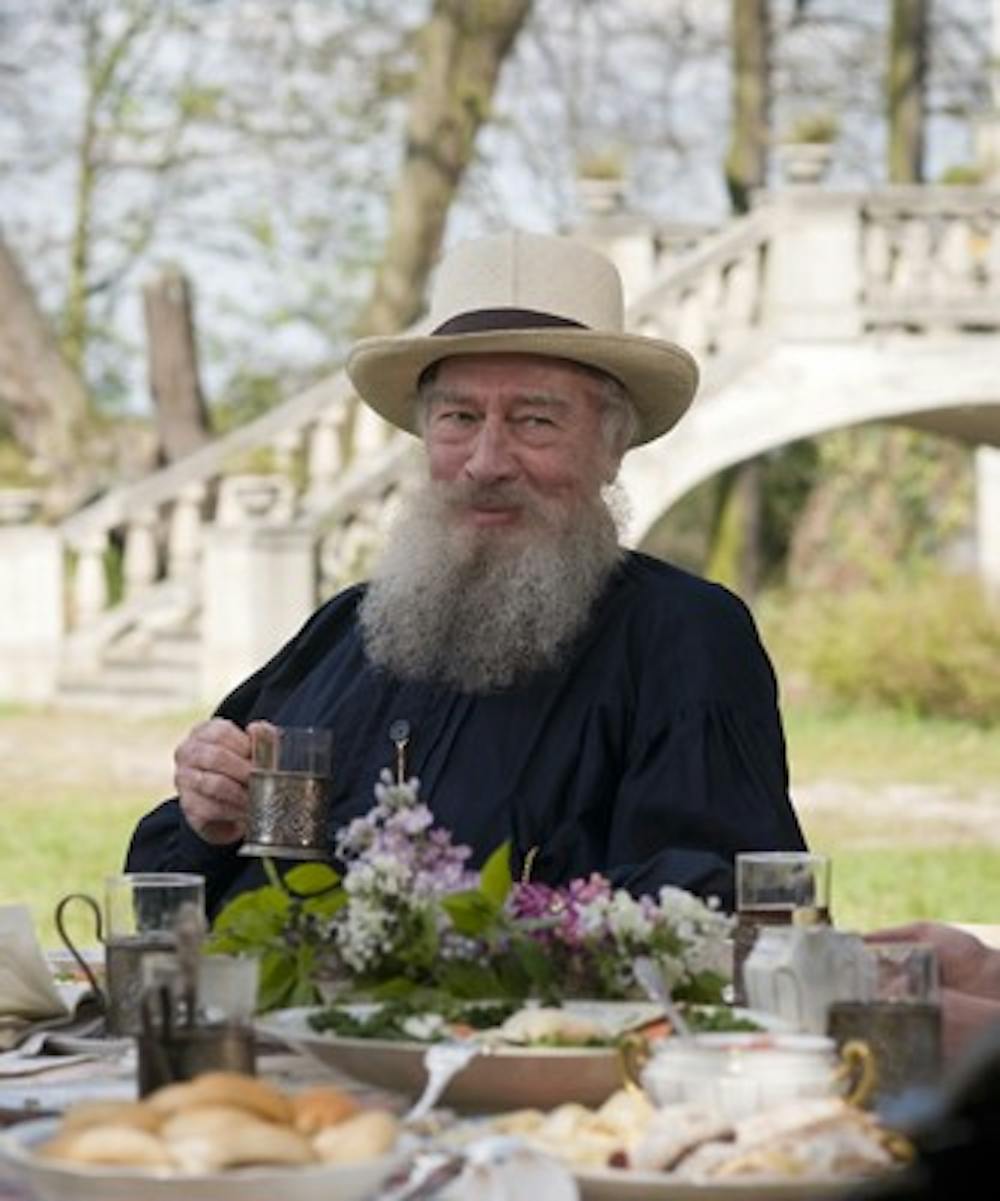What do George Clooney, Michelle Pfeiffer and Robert Downey, Jr. all have in common? (That is, besides fame, fortune and eternal good looks.)
They have all worked with multi-faceted director Michael Hoffman. Known for transcending different genres and conquering nearly all of them, Hoffman has made comedies, dramas and even the odd Shakespeare film adaptation usually reserved for Kenneth Branagh. Naturally, Hoffman’s next step was to make a film about Leo Tolstoy.
“The Last Station,” based on the novel of the same name by Jay Parini, focuses on the tumultuous last year in the life of influential Russian writer, Leo Tolstoy. In addition to directing the film, Hoffman wrote the screenplay and had a hand in choosing the actors. Christopher Plummer (“Up,” “Syriana”) dons a white beard and plays a convincing Tolstoy, while Helen Mirren (“The Queen”) plays his melodramatic and meddling wife, Sofya. Overseeing the situation is their twitchy but kind live-in student, Valentin Bulgakov (played by a bright-eyed James McAvoy) and Vladimir Chertkov (Paul Giamatti), Tolstoy’s number one fan and confidante.
As of yet, the film has been nominated for two Golden Globe and Screen Actors’ Guild awards, a fact that Hoffman embraces. He also feels anxious about this, considering the film almost didn’t get picked up for American distribution. Yet, for a director who’s made many Oscar-nominated films such as “Restoration” and “One Fine Day,” Hoffman can’t honestly feel too surprised.
“I believe in the performances very much,” Hoffman said in an interview with The Eagle. “Helen [Mirren] and Chris [Plummer] had the kind of chemistry you dream of in a romantic comedy. They portrayed marriage at a stage you don’t see much in film.”
Still, Hoffman doesn’t feel as though the film is about romance, but rather about the gap between love and romance and the way we all idealize it.
“It’s a tragic comedy, because it’s about love in the real world that we all have to deal with in our lives,” he said. “We’re all imperfect and we have to practice with our imperfect love.”
Hoffman was first inspired by the novel of the same name but had no intention of making a film about it. For those who have read the book and are going to see the movie, the director warns that his adaptation of the book is different. The novel itself focuses on all aspects of Tolstoy’s last year, such as politics, family, religion and love, all while having six different character viewpoints. Hoffman chose to focus on love and in turn focus on one person: Valentin.
“I had fun writing all of the characters, but I really loved Valentin,” Hoffman said. “He really lines up, and we inhabit his world and emotion in his writing.”
With the young and talented McAvoy as Valentin, it’s easy to see what makes him so likeable. Paired with Plummer and Mirren, it seems like a dream for Hoffman to work with this cast of actors. Although he did not specifically request it for these characters, all the main actors had a background in theater, a quality Hoffman found essential for this film in particular.
“We were all here to tell a story — everyone had an obligation,” Hoffman said. “All of the actors were so good on that level, just so sophisticated because they come from theater. As an actor myself, I wouldn’t want a role written for me. I would want a challenge and a fascinating person.”
To say that Tolstoy was a fascinating person is a large understatement, a fact that Hoffman was well aware of when doing research for the film. Aside from reading the Parini novel, he also read diaries kept by those who followed Tolstoy. Keeping diaries was a surprisingly frequent hobby of people in that time, especially for those who cared to become believers in Tolstoy’s line of faith and philosophy. For any director seeking to accurately describe a historical figure, multiple diaries and excess material to work with can make filmmaking that much richer. In this case, it helped Hoffman to make a film that was less a biopic and more of a real film.
“Biopics too often are incidents strung together, and you justify it because it’s the things that happen to a famous person; there’s no story behind it,” Hoffman said. “It’s just a great story about mediocrity, which creates an interesting problem.”
Considering all the accolades the film has received from both audiences and critics, it’s clear that Hoffman made more than just a biopic.
“I find a story I love and work to create an atmosphere,” Hoffman said. “Tolstoy’s life was something that showed me how to write about my own life.”
“The Last Station” opens in D.C. theaters on Feb. 5.
You can reach this staff writer at ydesta@theeagleonline.com.





